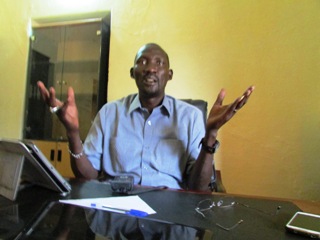Government capitation grants boost education in Jonglei state
September 14, 2015 (BOR) – The education ministry in South Sudan’s Jonglei state has reported a dramatic improvement in primary and secondary schools after the inception of government capitation grants to boost girls’ education in the country’s largest region.

“Our government gave priority to the education. There are three components that the government put in place to achieve quality education. The government gave us the grant. One is capitation, which goes to schools in the counties directly. We have also county operation grant for education. There is girls support, which goes to the pockets of the girls that qualify in the schools,” the education minister told Sudan Tribune Monday.
He added, “These three grants had help to boost the education system”.
Capitation grants used to go directly to benefitting schools accounts, through the state finance ministry. It was supervised by the education minister and Food for Hunger.
County operation grants for the education used to go directly to the county and education officials buy some materials needed for schools, according to the minister.
On the other hand, there is the girls’ support package of 125 South Sudanese Pounds (SSP) reportedly goes to the pockets of the girls that have qualified to join school.
“This year, the number of schools that qualify for capitation grant , has increased tremendously. These three grants had helped to boost the education system”, said Tut.
The ministries of finance, education and Food for Hunger are monitoring the implementation of the grants. Every child who now goes to school is no longer paying his or her school fees. In capitation grant, 39 and 80 SSP per child in primary school and secondary school respectively is being paid as school schools from this grant.
“We are seeing it. It is going smoothly to the schools that qualified for it”, said the minister.
“The government does not want any child, being a female or male, to be sent out of the school because he or she did not pay school fees”, he further stressed.
At national level, a total of SSP 10 million was remitted to seven states, including SSP 2.7 million to Warrap state, SSP 2.2 million to Central Equartoria state, SSP1.9 million to Eastern Equartoria state, Western Equartoria SSP1.1 million, Lakes state received SSP1 million, Northern Bahr el Ghazal state got SSP 722,000 while Jonglei state obtained SSP 163,000. Western Bahr el Ghazal, Upper Nile and Unity states missed out on the grants.
“With these support to the girls, the government wants girls to continue with their education. Our community doesn’t value girls, they don’t support many girls in schools, they rather support boys in schools and leaf behind girls”, the minister emphasised.
“The enrollment this year, compare to last year, has increased by at least 60 percent. This year, many of our schools are now operating in Bor, in Twic East and Duk. So the enrollment raised up tremendously”, he added.
Adut Panchol, one of the recipients currently studying sciences in Malek secondary school in Bor, appreciated the support directed to schools girls, saying they had been using it to buy things they critically lacked in their life as young school girls.
Atem Samuel, a teachers in Malek, who monitors and reports on the use of different components of these grants, suggested that although the government should make girls support funding to be coming on termly bases instead of once in a year, not all that is required by school girls are catered for by this grant due to its insufficient amounts.
“Girls had been coming to me, saying why can’t it be made to be coming on termly, that three times a year. We appreaciat this grant, it had not been there, but It would be good if this money is also increased SSP375 in a year, instead of SSP125 just once”, said Atem.
“We received this capitation grant in October last year, the first one was on October 2014, we invested the money we received from capital grants for buying text books for students, we bought over 150 books also bought 13 tables and part of it went for student feedings”, he added.
This year, Malek reportedly recieved SSP24,105 compared to SSP13,541 given last year.
“We bought two sets of books shelves, we also bought two hundred text books, part of it went for student’s feeding and renovation of the library building,” disclosed Atem.
(ST).
